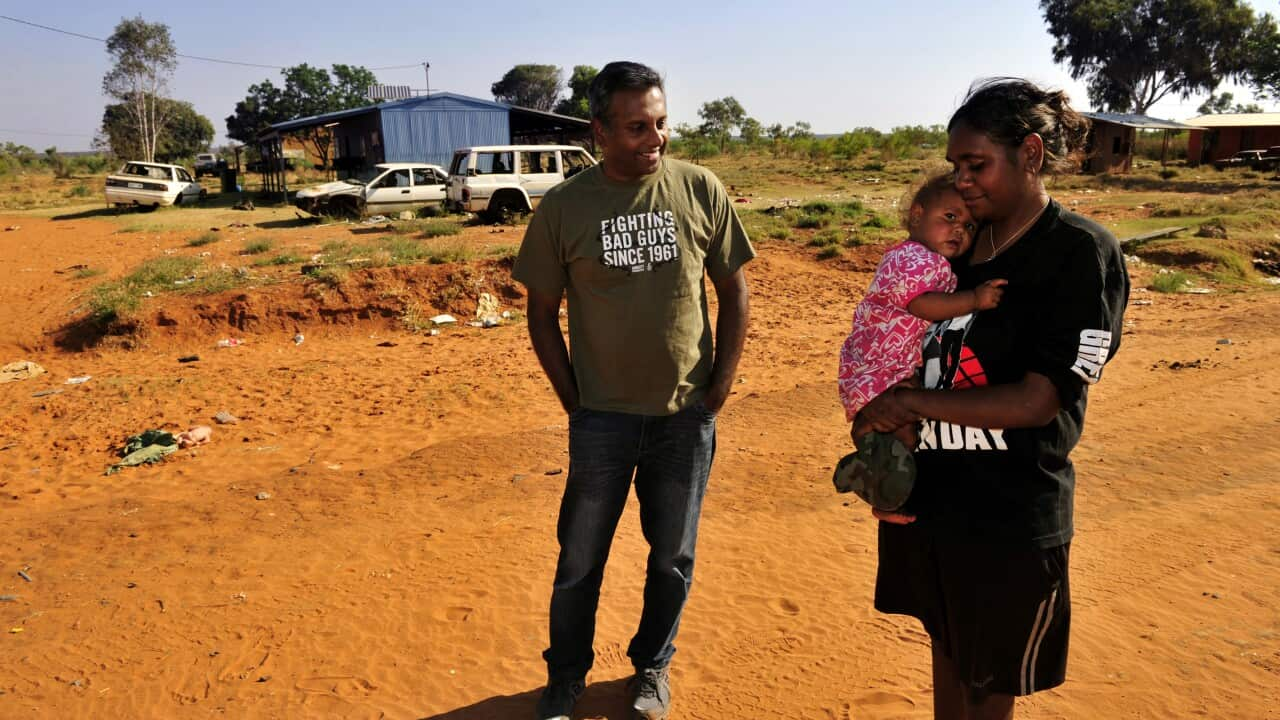The proud Yorta-Yorta man who has become a social commentator and advocate for the rights of Aboriginal and Torres Strait Peoples through his music, says that if these young people had more support, they wouldn’t be in prison.
"These kids are just, you know, regular kids," Briggs told NITV. "Obviously they've made some choices and mistakes.” But ultimately, he said, “These are, you know, your regular kids in a very unforgiving situation."
RECOMMENDED READING

A generation lost if Indigenous youth incarceration rate continues: Amnesty
In a about the overrepresentation of incarcerated Indigenous youths, Briggs visits Reiby, a juvenile justice centre for under 16s located on the edge of Sydney.
Up to 70 percent of the centre’s population is Indigenous, the centre said.
Briggs meets First Australian teenage men and learns about who they are. "Who do you call…When do you use the phone," he asks a teenager there.
"My mum," the young man replies. " Yeah I was talkin' to her last night."
These are, you know, your regular kids in a very unforgiving situation
Briggs told NITV: "I wanted to talk to these kids about them just being regular kids…like them having pictures of cars on the wall, playing PSP.”
Briggs said that the youth he met had not been given a chance to build their lives. "It's not fair, you know what I mean," he said. "It’s been not fair since the start and it’s still not fair.
"When you’re not given the proper tools to adapt and live and adjust, in a generational situation as well, it's like, how much chance do these kinds of kids in these kinds of communities have."

Briggs plays table tennis with one of the young men at Reiby Juvenile Justice Centre (Photo/VICE) Source: VICE
Where is our empathy?
Briggs said he hoped that greater society could put its empathy into gear but doubted that was possible.
"People have a [mentality of] 'get it together', but it comes from a place of privilege," he said. "[These] kids aren't taught how to adjust and problem-solve in a positive way, they only know how to act out and resort to violence because that’s what they’re taught."

Briggs with the kids at juvie (Photo/VICE) Source: VICE
"There's no one there to guide them…people with family support won’t ever understand that."
What the over-representation really looks like
Mick Gooda, Aboriginal and Torres Strait Islander peoples social justice commissioner, named the over-representation of Indigenous youths a "national emergency" in 2015.
I find it shocking that we are better at keeping our young people locked up in detention than in school. This is a national emergency
2013-2014 data from the shows that Indigenous young people are 26 times more likely to be in detention than their non-Indigenous counterparts. Indigenous youth make up just 5 percent of total Australians aged between 10 and 17, yet nearly 60 percent of them are in detention.
Amnesty International secretary-general Salil Shetty said the rate was a travesty.
"We will see another generation lost to failed government policies unless Australian Governments get smarter about this, and fast," Mr Shetty said at the National Press Club in Canberra earlier this year.
Aboriginal children in Western Australia are 53 times more likely to be imprisoned. Chief Justice Wayne Martin that those living in the state were the most disadvantaged in the country. "[The statistics are] absolutely appalling," he said.
Young people of Aboriginal and Torres Strait Islander descent constituted 48 percent of all young people in NSW custody, according to the state's 2014 justice annual report. Mick Gooda said there were many reasons why our young people find themselves locked up, but that "a lot of these reasons are preventable".
Mick Gooda said there were many reasons why our young people find themselves locked up, but that "a lot of these reasons are preventable".

There is an over-representation of incarceration of Indigenous youth in Australia (Photo/VICE) Source: VICE
Some of those reasons why they are being detained include mandatory sentencing that prevents courts from diverting young people out of the system. Some cannot get bail because they cannot be bailed anywhere while others are locked up because they have an undiagnosed disability and are not receiving the support that they need.
He called on Australia to give Indigenous peoples control in the effort towards change and advised justice targets to provide "clear benchmarks for change and enhance visibility and cooperation" between First Peoples and the government.
Indigenous Affairs Minister, Nigel Scullion the government did not plan to create a justice target.
"The Australian Government is not pursuing a justice target," a spokesperson for Nigel Scullion said.
"The government is working with communities, the private sector and non-government sector through supporting a range of initiatives to tackle the underlying disadvantage that increases the likelihood of Indigenous Australians having contact with the criminal justice system," she said.
"The key to this is getting children to school, adults to work and making communities safer."











